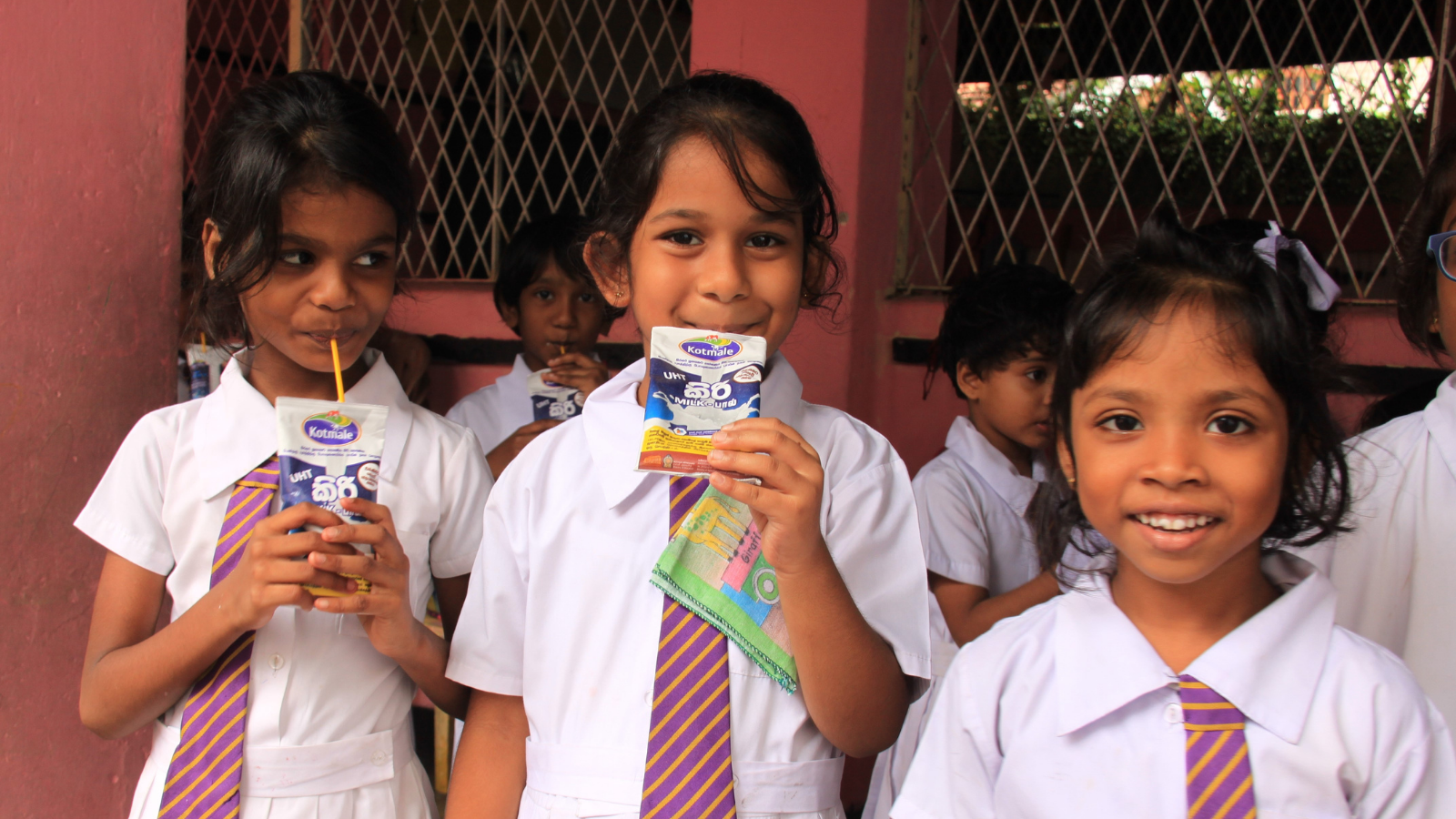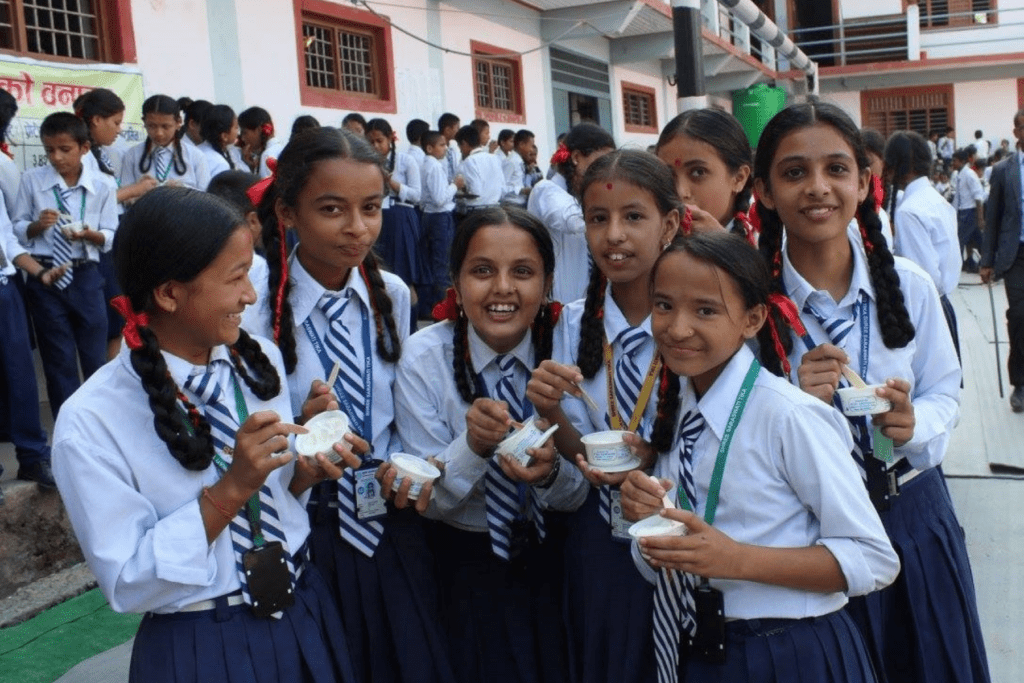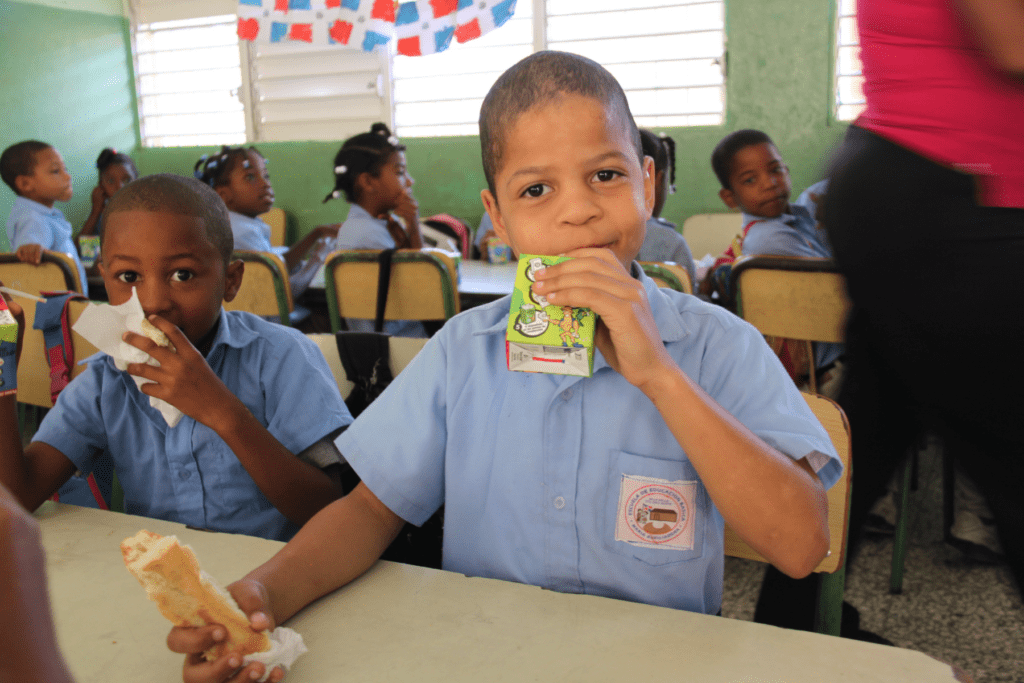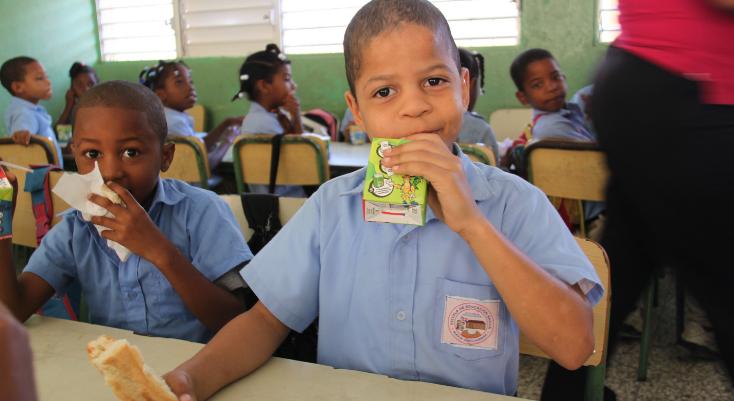School milk programs are common in many countries around the world, with over 160 million children worldwide currently benefiting from milk in schools. School milk programs are recognized for their positive impact on the nutrition needs of school-aged children to support their growth and development. Research has shown that these programmes are in place for good reason. They help to address issues of malnutrition and encourage healthy eating habits.
World School Milk Day is celebrated each year on the last Wednesday of September, which fell this year on September 29. To celebrate the day, IDF put together a virtual seminar to officially launch the IDF School Milk Knowledge Hub. Moderated by Caroline Emond, IDF Director-General, the webinar featured speakers from across the globe, addressing their global experiences, practices, contributions, and perspectives on the benefits of school milk programs worldwide.
Caroline Emond introduced the hour-long webinar with a video introduction to IDFs School Milk Programs Knowledge Hub that was launched earlier this year, the hub provides information on existing programs, case studies, resources and campaigns, other important links, and collaborations.
Speaker, Rafael Fabrega, Director of Tetra Laval Food for Development, shared Tetra’s global experiences and best practices in school milk programs. His organisation has been participating in the development of school feeding and nutrition programs for more than 58 years. He mentioned the challenge caused by the lack of infrastructure and the importance of data collection to measure demonstrable tangible impact.
The cooperation with the public sector, intergovernmental organisations, as well as non-governmental organisations was also addressed, mentioning the school milk knowledge hub as a “wonderful example of that”. Rafael also pointed out the current data proves that school feeding programs worldwide are a crucial and valuable investment for a country to ensure food security.
Heidi Kessler, Senior Program and Operations Officer at the Global Children Nutrition Foundation (GCNF) also presented at the IDF webinar under the title: School Milk Programs around the World: Learnings and Inspiration. She first explained the work of the GCNF. Some of the key observations provided in her presentation highlighted that “improving child health and nutrition is a primary program objective for school milk programs”, and how “school milk programs provide a predictable, long-term market for farmers and processors, thereby supporting productivity gains and private sector development” and that it is also important to note that “milk is provided free or at a subsidized price in most programs”, so that even those with the lowest income can benefit.
The latest Global Survey on School Feeding Programs shows that approximately 50% of programs serve dairy products. While 100% of programs in high-income settings served dairy products, this value was 78% in upper-middle, 39% in the lower middle, and 20% in lower-income settings. Milk being such a nutrient-dense and accessible food, it is crucial, now more than ever, to address the importance of school milk programs in achieving SDG2 of the UN Sustainable Development Goals.
On a positive note, it was highlighted that the countries that have implemented school milk programs, across all continents, have managed to maintain their programs, as well as see an improvement in school children’s health and academic performance, proving the success of school milk programs.
Heidi ended the detailed presentation, with a keynote: “Global school milk programs demonstrate an overwhelming consensus on the prioritization of improving child health and nutrition as a program objective”
Caroline Emond concluded the IDF webinar, with a reminder of the importance of school milk programs to deliver the UN SDGs:
“It is crucial in the times that we are in, to remind your government of the contribution of school milk programs. It is important to showcase the benefits of those programs so that we can scale up existing programs, bring more countries to implement school milk programs, and ensure that milk and dairy foods are offered in school feeding programs so that more children have access to school milk feeding programs”. She concluded: “As you have seen, milk and dairy foods are versatile foods and are served as part of breakfast, lunch meal or as a snack. School Milk Programs increase access to education, improve nutrition and health and stimulate local economies and contribute to the UN SDGs. That is why we celebrate the World School Milk Day around the world!”
You can watch the webinar on our YouTube channel here.
The IDF School Milk Knowledge Hub is available here.











